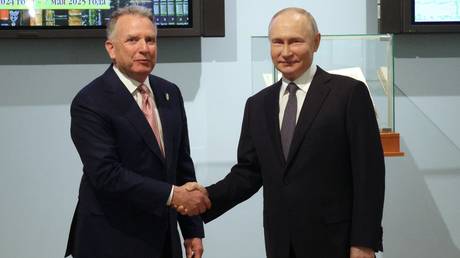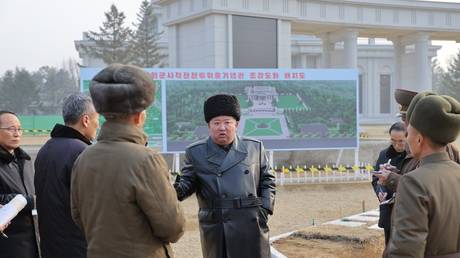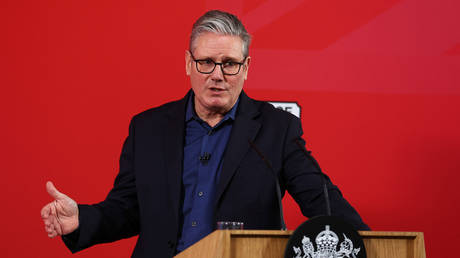
Russian President Vladimir Putin’s meeting with Steve Witkoff lasted four hours
Steve Witkoff’s visit to Russia is aimed at facilitating direct US communications with the Kremlin as part of a broader effort to negotiate a ceasefire and eventual peace agreement in the Ukraine conflict, White House spokeswoman Karoline Leavitt said on Friday.
Witkoff, a confidant of US President Donald Trump, has been tapped as his special envoy in the effort to mend ties with Russia. Today’s meeting with Russian President Vladimir Putin in St. Petersburg is Witkoff’s third since February, when he successfully negotiated a prisoner exchange which Washington and Moscow described as a trust-building gesture. He was also part of a high-level US delegation that met Russian officials in Saudi Arabia last month for discussions on the Ukraine conflict.
”I can confirm that Mr. Witkoff is in Russia to have direct communications with the Kremlin and with Vladimir Putin,” Leavitt told reporters at a press briefing.
”This is another step in the negotiating process towards a ceasefire and an ultimate peace deal in Russia and Ukraine,” she said, declining to provide further details. “As these negotiations are ongoing, I obviously will not get ahead of the president or his team. But I think the president has been quite clear that he’s been continually frustrated with both sides of this conflict, and he wants to see this fighting end.”
Speaking with journalists before Friday’s meeting, Kremlin spokesman Dmitry Peskov said the duration of the talks would be flexible and could take “an hour, or two, three or four; as long as President Putin requires.”
Last week, Witkoff met with Russian presidential aide Kirill Dmitriev in Washington. The head of the Russian Direct Investment Fund advises Putin on international economic cooperation and was spotted in the morning walking out of a hotel in St. Petersburg alongside Trump’s envoy.
Peskov warned against expecting significant progress from the meeting but mentioned topics that could be discussed, such as the normalization of bilateral relations, a potential in-person meeting between the two presidents, and the conflict in Ukraine.




